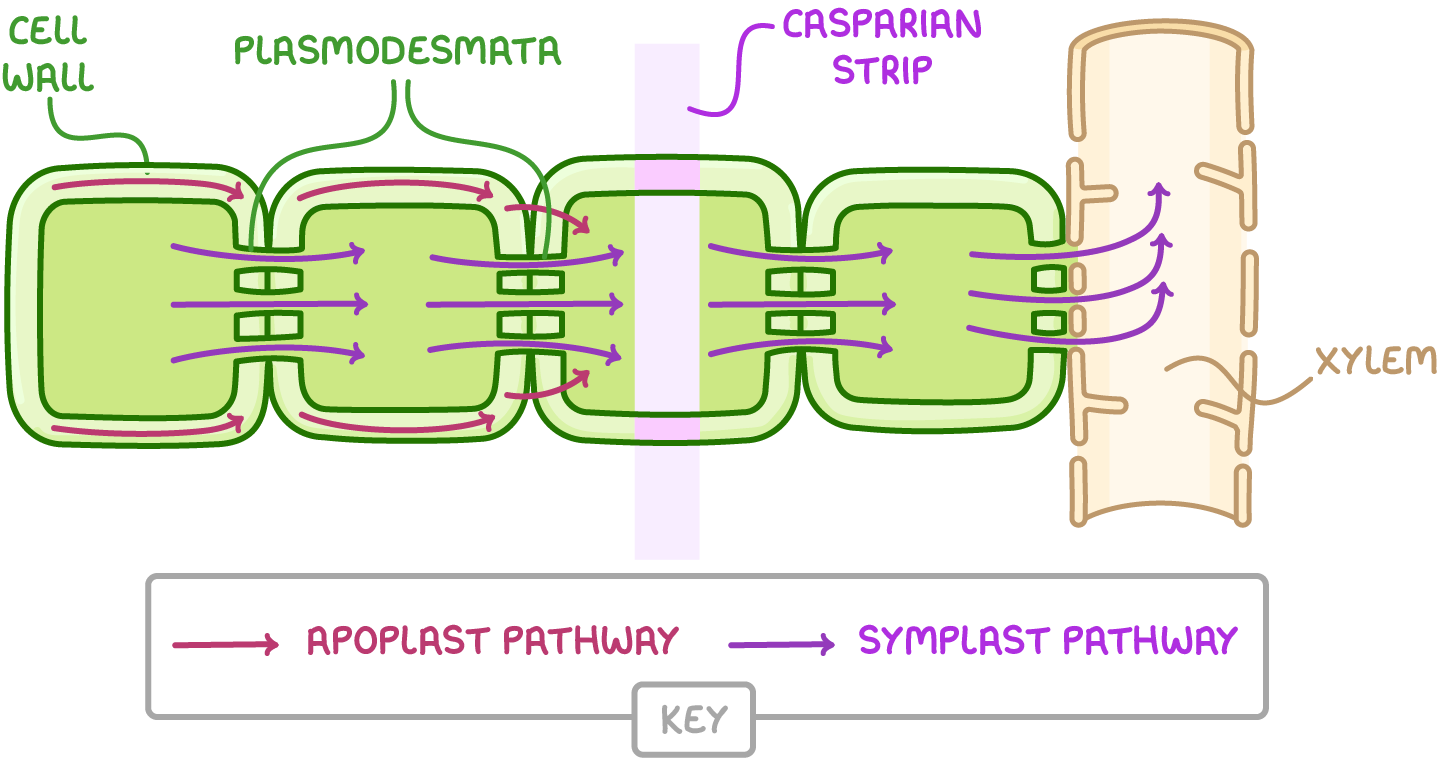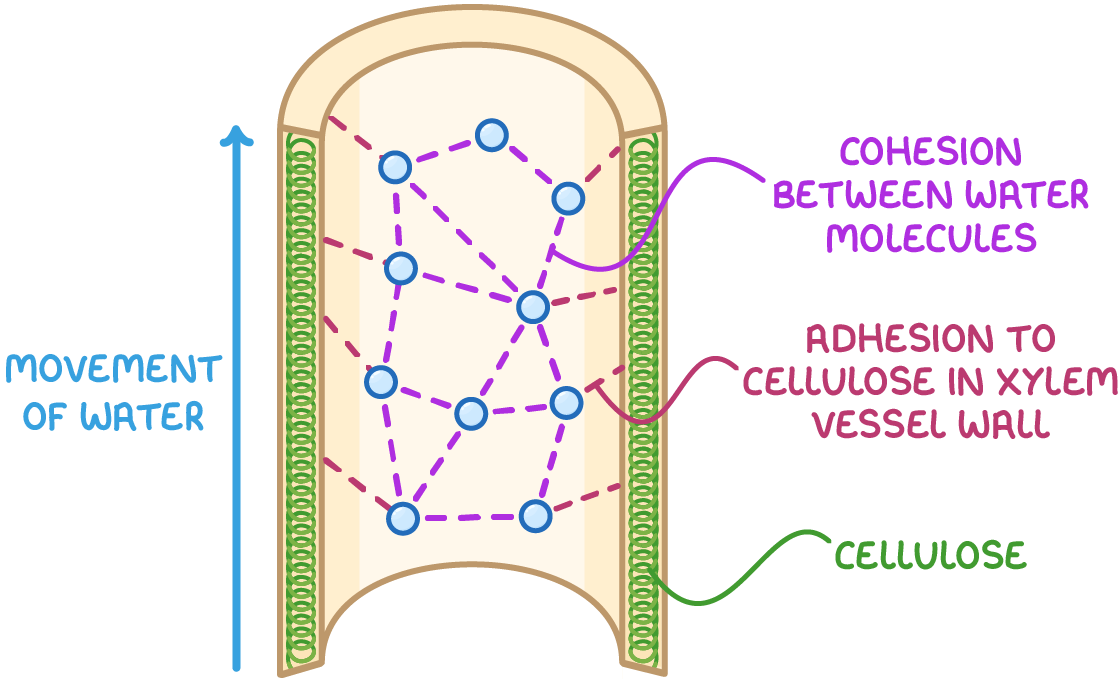Cohesion-tension Theory
This lesson covers:
- How water enters the root
- The apoplast pathway and the symplast pathway
- How water moves through the xylem
- The mechanisms driving water upwards
Water movement through a plant
Water enters plants through their roots.
Water then moves through a plant as follows:
- Water enters a plant's root hair cells via osmosis.
- It moves through the cell cytoplasm or cell walls towards the xylem.
- The xylem transports water from the roots up to the leaves.
The apoplast pathway and the symplast pathway
There are two main pathways taken by water once it has entered a plant root to reach the xylem: the apoplast pathway and the symplast pathway.

The apoplast pathway:
- Water moves through spaces in the cell walls and between cells.
- This occurs due to the cohesive and adhesive properties of water.
The symplast pathway:
- Water moves from cell to cell through the cytoplasm and plasmodesmata.
- This occurs due to water potential gradients.
The Casparian strip
The apoplast pathway is blocked at the root endodermis by the Casparian strip.
This is a band of a waterproof substance called suberin that surrounds the endodermis cells. It forces water out of the apoplast pathway and into the symplast pathway.
The pathway to leaf cells
After the xylem transports water up through a plant, water exits the xylem into leaf cells. It travels from the xylem to photosynthesising leaf cells via the apoplast pathway.
Water then evaporates from cell walls in the leaf into air spaces so it can exit the plant through its stomata.
The cohesion-tension theory
The cohesion-tension theory explains how water moves upwards through the xylem against gravity.

This occurs due to various factors:
- Cohesion - Hydrogen bonding causes water molecules to stick together and move as one continuous column.
- Adhesion - Hydrogen bonding between polar water molecules and non-polar cellulose in xylem vessel walls pulls water upwards through the xylem.
- Transpiration pull - Evaporation of water at leaves creates the transpiration pull, and this tension is transmitted down the whole water column due to cohesion.
This causes water to be pulled up through the xylem vessels.